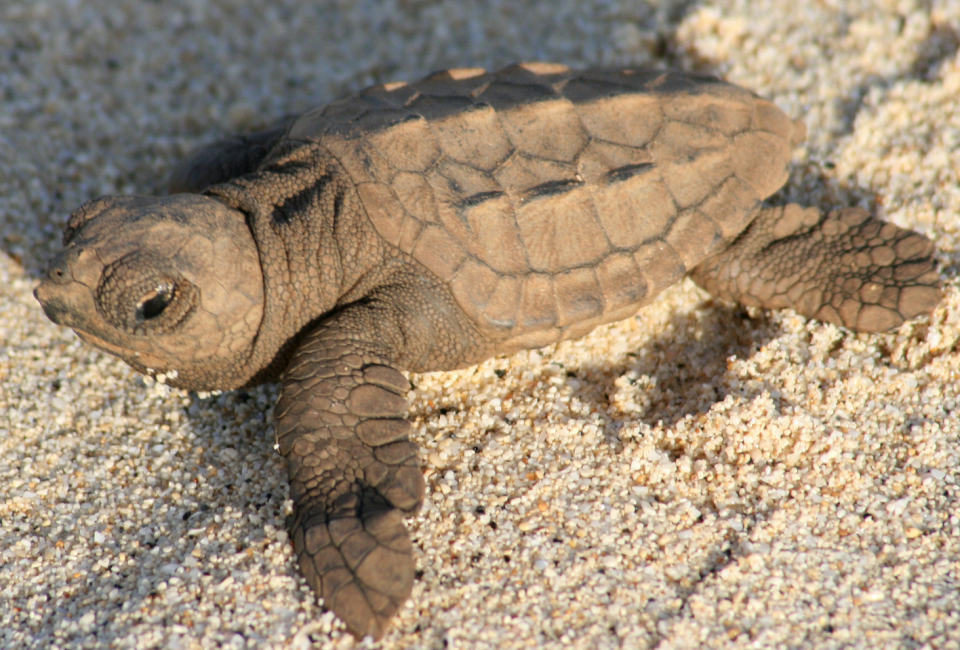
A project lead by BETA Technology Center will involve Marine Protected Areas in the management and monitoring of sea turtle nesting in the western Mediterranean
Marine protected areas will be used as a starting point for the management and monitoring of sea turtle nests in the western Mediterranean. That is the basis of the COMING project, the latest initiative led by the BETA Technology Center of the University of Vic - Central University of Catalonia, which has just been launched with financial support from the MAVA Foundation. The project has been approved within the framework of the "Thematic Call for Small Projects on Sustainable Management of Marine Turtles of MedPAN." The University of Barcelona and the Italy's Stazione Zoologica Anton Dohrn in Naples are also taking part.
There are five Marine Protected Areas (MPAs) involved in the COMING project (Coordinated monitoring and management of sea turtle nesting activity in the western Mediterranean through MPA): two in Catalonia - the Maresme Coast MPA and the Ebro Delta MPA, managed by the Government of Catalonia; and three Italian areas, the Costa degli Infreschi e Costa della Masseta and Santa Maria di Castellabate MPA, run by the Parco Nazionale del Cilento Vallo di Diano e Alburni, and the Isole Pelagie MPA, managed by the Comune di Lampedusa and Linosa.
A growing nesting area
The western Mediterranean is becoming a regular nesting area for Caretta caretta sea turtles, possibly as a result of a colonisation process which is perhaps encouraged by global warming, involving individuals coming either the eastern Mediterranean or the Atlantic nesting beaches. These new populations in colder areas in the western Mediterranean are crucial for enhancing the resilience of the species in the Mediterranean, as most nesting areas in the eastern basin are not expected to remain optimal in the short term due to global warming.
Most of these events take place on beaches with a significant human presence. This situation, combined with the lack of common protocols for application by management personnel and a lack of public awareness means that the turtles' eggs and young are harmed, the females are disturbed and it is impossible for them to lay their eggs, and also leads to poor management decisions and missed opportunities for gathering scientific data.
For all these reasons, explains Mireia Aguilera, a researcher at the BETA Technology Center, "it is essential to establish common guidelines for management and conservation, improve public involvement in the management of these events, and carry out a scientific monitoring programme." According to Aguilera, all these measures implemented in different countries should lead to "the stabilisation of these nesting events, and the promotion of habitats which are suitable for the survival of the species in a context of global change."
In order to achieve this, the project will carry out several initiatives divided into three main objectives: The development of a common strategy for monitoring and managing nests in the western Mediterranean. Second, scientific studies on the origin and viability of these events will be carried out, including studies of beach temperature profiles that show whether they are viable during laying seasons, and genetic studies to determine the population of origin of the breeding specimens, as well as the number of individuals which contribute to the population. Finally, outreach and awareness-raising activities on the biology and nesting process of Caretta caretta will be undertaken to involve the public in the management of events.
Protected marine areas play a central role in monitoring and managing these events for several reasons, according to Elena Abella, a researcher working with the BETA Technological Center: "some of the nesting areas have been located within these MPAs, so they will benefit from the development of common protocols that enable the right management decisions to be taken." Furthermore, "these areas are excellent starting points for launching information and awareness campaigns in order to improve detection and the work done by local specialists and institutions and the general public, who need to adapt to the presence of nesting turtles on beaches."
The first meeting of the project was held at the end of May, and was attended by representatives of the three institutions involved, and acted as a starting point to begin work on the three lines of research that will be undertaken.